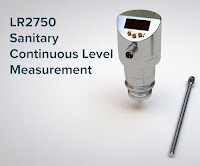
 The Fischer & Porter Company, founded in 1937, was a well-known and respected manufacturer of
The Fischer & Porter Company, founded in 1937, was a well-known and respected manufacturer of process instrumentation. The Fischer and Porter brand has long been associated with an industry-leading range of flow measurement products. The legacy is strong though, and despite the F&P brand being shelved, their rotameter (variable area flowmeter) line is still referred to by some old-timers as "Fischer and Porter Rotameters" or "F&P Rotameters".
In 1994, Fischer & Porter was acquired by Elsag Bailey Process Automation as a strategic union to blend Elsag Bailey's expertise in distributed systems with Fischer & Porter's expertise in process instrumentation. In 1999 ABB acquired Elsag Bailey and moved the F&P products in to a larger portfolio of ABB process instrumentation and the Fischer and Porter line of rotameters became known as ABB rotameters.

Today, Fischer & Porter products are fully integrated into the ABB portfolio of process instrumentation products which include variable area flowmeters (rotameters), magnetic flow meters, vortex shedding meters, and mass flow meters.
In 1947 Thompson Equipment (TECO) was the first firm ever appointed to represent and sell the Fischer & Porter Rotameter line. TECO proudly continues that relationship today and specifies, services, and sells ABB Rotameters nationwide. TECO also maintains a large inventory ready for same-day shipment. For more information, visit https://teco-inc.com/ABB or call 800-528-8997 for immediate service.



